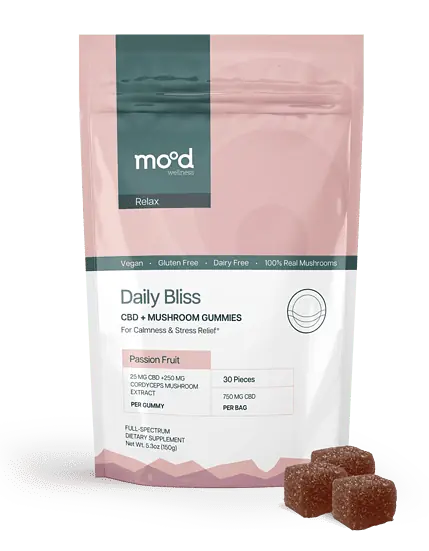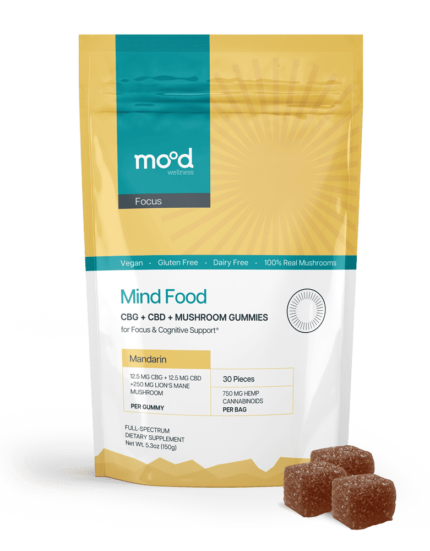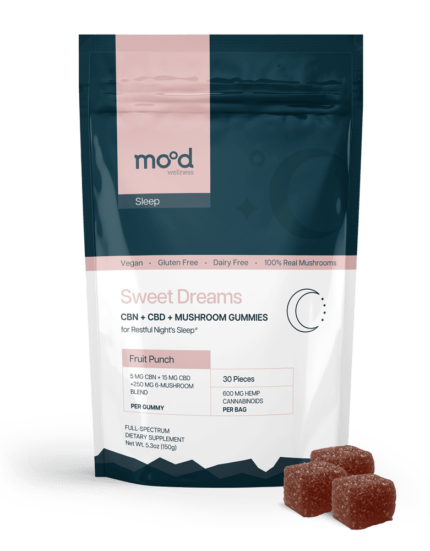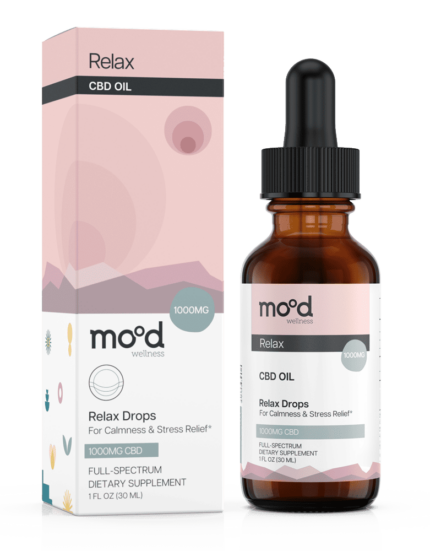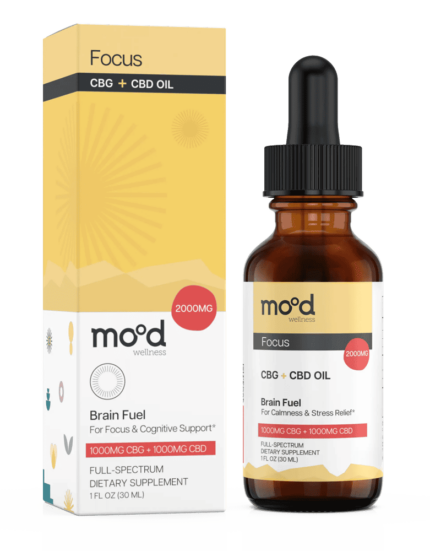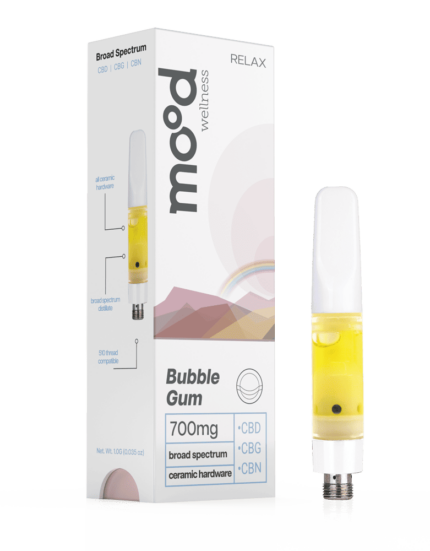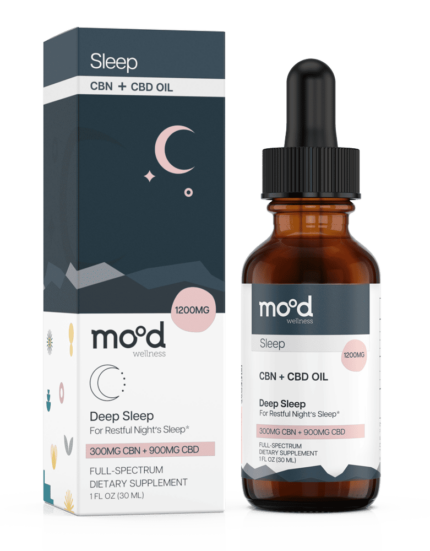The Turkey Tail mushroom, scientifically known as Trametes versicolor and often revered in traditional Eastern medicine,
is a unique and colorful fungus known for its striking resemblance to a turkey’s tail.
This article delves into the world of Turkey Tail mushrooms, exploring their potential health benefits, uses, and side effects, all underpinned by scientific research and studies.
What is Turkey Tail Mushroom?
The Turkey Tail mushroom, Trametes versicolor, stands out in the fungal kingdom for its distinctive, multi-hued fan shape that strikingly mimics the plumage of a turkey’s tail. This mushroom, beyond its visual appeal, holds a significant place in traditional medicine, particularly in Asia, and has recently gained recognition in Western wellness circles.
Here’s a closer look at the Turkey Tail mushroom:
- Appearance: Turkey Tail mushrooms exhibit a captivating array of colors – often displaying bands of brown, grey, white, and even blue or green. Their thin, leathery texture and characteristic fan shape make them easily identifiable in their natural habitats.
- Habitat: These mushrooms predominantly grow on dead hardwood logs and are widely distributed across North America, Asia, and Europe, showcasing their remarkable adaptability to different environmental conditions.
- Historical Significance: Long revered in Eastern cultures, particularly in Chinese and Japanese medicine, Turkey Tail has been used for centuries. It’s traditionally employed for its supposed immune-boosting and health-promoting properties.
- Composition: Rich in bioactive compounds, Turkey Tail mushrooms contain polysaccharopeptides like PSK and PSP, beta-glucans, and a range of antioxidants. These compounds are believed to be the key drivers behind the mushroom’s health benefits.
- Current Research: Scientific interest in Turkey Tail mushrooms has surged, with studies exploring their potential in immune support, cancer therapy adjunct, and as a source of natural antioxidants.
The Turkey Tail mushroom is not just a visually intriguing species; it’s a focal point of both historical medicinal practices and contemporary scientific research, offering a unique blend of tradition and modern health potential.

Nutritional Profile
The Turkey Tail mushroom, while not typically consumed for its culinary value, boasts an impressive nutritional profile that contributes to its growing popularity in health and wellness communities. This mushroom is a treasure trove of nutrients and bioactive compounds, making it a subject of interest for those looking to incorporate natural supplements into their health regimen. Here are the key nutritional aspects of Turkey Tail mushrooms:
- Polysaccharides: One of the most notable components is the polysaccharides, including beta-glucans. These complex carbohydrates are known for their immune-boosting properties and play a significant role in the mushroom’s health benefits.
- Protein and Fiber: Turkey Tail contains a decent amount of protein and dietary fiber, contributing to its nutritional value.
- Vitamins and Minerals: Although not abundant in vitamins and minerals, Turkey Tail mushrooms do provide a range of micronutrients. They contain small amounts of vitamins like B-complex and minerals such as potassium, zinc, and selenium.
- Antioxidants: Rich in antioxidants, Turkey Tail mushrooms help combat oxidative stress in the body. This includes phenols and flavonoids, which are known for their anti-inflammatory properties.
- Low in Calories and Fat: These mushrooms are low in calories and almost devoid of fat, making them an excellent addition to a health-conscious diet.
It’s important to note that while the nutritional content of Turkey Tail mushrooms is beneficial, they are most commonly consumed in extract or supplement form rather than as a food source. The extraction process is designed to isolate and concentrate these beneficial compounds, making them more readily available for absorption by the body.
The Potential Health Benefits Of Turkey Tail Mushroom
Turkey Tail mushrooms have gained significant attention in the health and wellness sphere due to their array of potential health benefits. These benefits are largely attributed to their rich composition of bioactive compounds, which have been the subject of various scientific studies. Below are some key health benefits of Turkey Tail mushrooms, each backed by research:
- Immune System Support: One of the most researched aspects of Turkey Tail mushrooms is their ability to enhance the immune system. Polysaccharopeptides like PSK and PSP, found in Turkey Tail, have been shown to stimulate the immune system. A study published in 2019 demonstrated that PSK can enhance immune response, especially in individuals with certain immune deficiencies or undergoing chemotherapy.
- Cancer Therapy Adjunct: Turkey Tail mushrooms have been studied for their role in cancer therapy, particularly as an adjunct to traditional treatments. Research, including clinical trials, has indicated that PSK, an extract from Turkey Tail, can improve survival rates in some cancer patients. For instance, a study highlighted the positive effects of PSK in prolonging survival in cancer patients, especially in conjunction with chemotherapy.
- Antioxidant Properties: The antioxidants present in Turkey Tail mushrooms, such as phenols and flavonoids, play a crucial role in reducing oxidative stress in the body. A few studies noted that these antioxidants can help mitigate cellular damage caused by free radicals, potentially lowering the risk of chronic diseases.
- Gut Health: Turkey Tail mushrooms contain prebiotics, which help nourish the beneficial bacteria in the gut. A study from recnet years, pointed out that the polysaccharides in Turkey Tail can improve gut health by promoting the growth of good bacteria and enhancing overall gut flora balance.
- Anti-Inflammatory Effects: The compounds in Turkey Tail mushrooms also exhibit anti-inflammatory properties. Some research have been explored the anti-inflammatory potential of Turkey Tail, suggesting its usefulness in managing inflammatory conditions.
It’s crucial to note that while these studies highlight the potential health benefits of Turkey Tail mushrooms, they are mostly adjunct therapies or complementary to conventional treatments. The mushrooms’ effects can vary depending on individual health conditions, and it is always advisable to consult healthcare professionals before starting any new supplement regimen, especially in the context of serious health conditions like cancer.

How to Use Turkey Tail Mushroom
Turkey Tail mushrooms, known for their potential health benefits, can be incorporated into your health regimen in various ways. While they are not typically used in cooking due to their tough texture, there are several other methods to harness their benefits. Below are some common ways to use Turkey Tail mushrooms:
- Tea: One of the most traditional methods is brewing a tea. To do this, simmer the dried mushrooms in water for an extended period, often for at least an hour, to extract the beneficial compounds. This method allows for a gentle extraction of polysaccharides and other bioactive components.
- Supplements: Turkey Tail is widely available in supplement form, including capsules, pills, and powders. These supplements often contain concentrated extracts of the mushroom, ensuring a more potent dose of the active compounds. It’s important to choose supplements from reputable manufacturers and to follow the recommended dosage.
- Tinctures: Tinctures are concentrated liquid extracts. Turkey Tail tinctures are made by soaking the mushroom in alcohol or a water-alcohol mixture for several weeks. This process extracts both water-soluble and alcohol-soluble compounds, providing a broad spectrum of the mushroom’s beneficial properties.
- Powders: Turkey Tail powders can be added to smoothies, soups, or other foods. These powders are often made from dried and ground mushrooms or from extracts. They offer a convenient way to incorporate Turkey Tail into your daily diet.
- Cooking: Although not commonly used for culinary purposes due to their tough texture, some people do incorporate Turkey Tail mushrooms into broths or stews. In these cases, the mushrooms are typically strained out before consumption.
When using Turkey Tail mushrooms, especially in supplement form, it’s essential to consult with a healthcare provider to ensure they are appropriate for your health needs and do not interact with any medications you may be taking. It’s also crucial to source these products from reputable suppliers to ensure quality and safety.
Turkey Tail Gummies: A Convenient Alternative
In recent years, Turkey Tail mushrooms have found their way into a more palatable and convenient form – gummies. These gummies offer a user-friendly and enjoyable option for incorporating Turkey Tail’s benefits into daily life, especially for those who may not prefer teas or capsules. Here’s what makes Turkey Tail gummies an appealing alternative:
- Ease of Consumption: Gummies are easy to consume, particularly for individuals who have difficulty swallowing pills or capsules. They offer a simple, chewable form that can be taken anywhere, making them a convenient option for busy lifestyles.
- Taste Factor: Unlike the earthy, sometimes bitter taste of Turkey Tail teas or tinctures, gummies can be flavored to make them more palatable. This is particularly advantageous for those who are sensitive to the taste of herbal supplements.
- Dosage Control: Turkey Tail gummies often come in pre-measured doses, eliminating the guesswork involved in brewing teas or measuring out powders. This ensures consistent and accurate dosing each time they are consumed.
- Added Ingredients: Many Turkey Tail gummies include additional vitamins or supplements, enhancing their health benefits. For instance, some gummies might contain added vitamin C or D for immune support, combining the benefits of these nutrients with those of Turkey Tail.
- Appeal to All Ages: Gummies can be more appealing to a wider range of ages, including younger individuals who might be hesitant to try traditional supplements.
Despite these advantages, it’s important to consider the quality and composition of Turkey Tail gummies. Potential users should look for products with minimal added sugars and artificial ingredients. Additionally, it’s crucial to check the concentration of Turkey Tail extract in the gummies to ensure they provide an effective dose. As with any supplement, consulting with a healthcare provider before starting Turkey Tail gummies, especially for those with underlying health conditions or those taking other medications, is advised.
Dosage Recommendations
When considering the use of Turkey Tail mushrooms for their health benefits, understanding the appropriate dosage is crucial for efficacy and safety. The optimal dosage can vary depending on the form of Turkey Tail being used (e.g., tea, supplement, tincture) and the individual’s health status and goals. Here are some general guidelines:
- Tea: For those brewing Turkey Tail mushroom tea, a common recommendation is to use about 3-5 grams of dried mushrooms per cup of water, simmering for at least an hour. One to two cups per day is a typical dosage.
- Supplements (Capsules/Pills): The dosage for Turkey Tail supplements can vary widely depending on the concentration and formulation. Generally, dosages range from 500 mg to 3000 mg per day. It’s essential to follow the manufacturer’s instructions or a healthcare provider’s recommendation.
- Tinctures: Tincture dosages are usually measured in drops or milliliters. A common dose might be 2-3 ml, taken 1-3 times daily, but this can vary based on the tincture’s strength. Again, following product-specific guidelines or a healthcare professional’s advice is important.
- Gummies: Dosage for gummies will depend on the concentration of Turkey Tail extract in each gummy. Manufacturers typically provide recommended dosages on the packaging, which might range from one to several gummies per day.
- Powders: If using powdered Turkey Tail mushroom, dosages might range from 1 to 2 grams per day, often added to foods or beverages.
As with any supplement, starting with a lower dose and gradually increasing it while monitoring for any adverse reactions is advisable. Always consult with a healthcare professional before beginning any new supplement regimen, particularly for those with pre-existing health conditions or those taking other medications.
- Powders: If using powdered Turkey Tail mushroom, dosages might range from 1 to 2 grams per day, often added to foods or beverages.
Side Effects and Considerations
While Turkey Tail mushrooms are generally considered safe and well-tolerated, it’s essential to be aware of potential side effects and considerations, especially when taken in supplement form or in high doses. Understanding these can help ensure safe and effective use. Here are some key points to consider:
- Digestive Upset: The most common side effect associated with Turkey Tail mushrooms, especially in supplement form, is digestive discomfort. This can include symptoms like gas, bloating, or changes in bowel habits. Starting with a lower dose and gradually increasing may help minimize these effects.
- Allergic Reactions: As with any natural product, there is a potential for allergic reactions. Symptoms could range from mild (such as rashes or itching) to more severe. Anyone with known allergies to mushrooms should avoid Turkey Tail products.
- Interactions with Medications: Turkey Tail mushrooms can interact with certain medications, particularly those affecting the immune system. For instance, they may interact with immunosuppressants or certain chemotherapy drugs. It’s vital to consult a healthcare provider before using Turkey Tail supplements if you are on any medication.
- Effects on Autoimmune Diseases: Due to their immune-modulating properties, individuals with autoimmune conditions should use Turkey Tail mushrooms cautiously. Consultation with a healthcare provider is essential in these cases.
- Quality and Purity: The market for mushroom supplements can vary in quality. It’s important to purchase Turkey Tail products from reputable sources to ensure they are free from contaminants and accurately labeled in terms of dosage and concentration.
- Pregnancy and Breastfeeding: There is limited research on the safety of Turkey Tail mushrooms during pregnancy or breastfeeding. As a precaution, it is advisable for pregnant or breastfeeding women to avoid use or consult a healthcare professional.
In summary, while Turkey Tail mushrooms offer various potential health benefits, they should be used with consideration of individual health circumstances, potential side effects, and interactions with other medications. Always consult with a healthcare provider for personalized advice and guidance, especially if you have underlying health conditions or are taking prescription medications.

The Science Behind Turkey Tail Mushroom
The increasing interest in Turkey Tail mushrooms is largely driven by scientific research exploring their potential health benefits. This research focuses on the bioactive compounds in Turkey Tail mushrooms and their effects on human health. Below is a table summarizing some key scientific findings related to Turkey Tail mushrooms:
| Study Focus | Compound(s) Investigated | Key Findings |
| Immune System Enhancement | Polysaccharopeptides (PSP & PSK) | Demonstrated immune-boosting effects, with potential benefits for immune-compromised individuals. |
| Cancer Therapy Adjunct | PSK (Krestin) | Shown to improve survival rates in some cancer patients, particularly when used alongside chemotherapy. |
| Antioxidant Activity | Phenols, Flavonoids | Found to have significant antioxidant properties, reducing oxidative stress in the body. |
| Gut Health | Polysaccharides | Indicated to support gut health by promoting the growth of beneficial gut bacteria. |
| Anti-Inflammatory Effects | Various bioactive compounds | Exhibited potential in managing inflammation, useful in treating inflammatory conditions. |
This table represents a snapshot of the ongoing research into Turkey Tail mushrooms. The studies mentioned provide a foundation for understanding how Turkey Tail mushrooms can be beneficial, highlighting their role in immune enhancement, cancer therapy support, and overall wellness.
However, it’s important to acknowledge that research is continually evolving, and more studies are needed to fully understand the extent and mechanisms of these benefits. As always, these findings should be considered alongside professional medical advice, especially when used for specific health conditions.
Turkey Tail in Traditional vs. Modern Medicine
The use of Turkey Tail mushroom, Trametes versicolor, spans centuries, featuring prominently in traditional medicine, especially in Eastern cultures. In contrast, its role in modern medicine, particularly in the West, has gained momentum more recently, driven by scientific research and interest in natural health remedies. Below is a comparative analysis of Turkey Tail’s use in traditional versus modern medicine:
Traditional Medicine:
- Historical Use: Turkey Tail has been used for thousands of years in traditional Chinese and Japanese medicine. It’s known as “Yun Zhi” in China and “Kawaratake” in Japan.
- Health Beliefs: Traditionally, Turkey Tail is valued for its ability to strengthen the body, enhance longevity, and support immune health. It’s often used in herbal formulas to treat various health issues.
- Preparation Methods: In traditional practices, Turkey Tail is typically prepared as a tea or decoction. It may also be combined with other herbs in complex formulations.
- Cultural Significance: The use of Turkey Tail is deeply rooted in cultural health practices and holistic approaches to wellness, emphasizing balance and natural healing.
Modern Medicine:
- Scientific Research: The focus in modern medicine is on isolating and studying specific compounds within Turkey Tail, such as polysaccharopeptides (PSP and PSK), for their medicinal properties.
- Clinical Applications: Research has explored the use of Turkey Tail in supporting cancer therapy, boosting the immune system, and as a source of antioxidants. Clinical trials have been conducted to quantify its effects.
- Supplement Forms: In modern medicine, Turkey Tail is commonly available in more concentrated forms, including extracts, capsules, and powders, allowing for standardized dosing.
- Regulatory Aspects: The use of Turkey Tail in modern medicine involves regulatory considerations, ensuring the safety, efficacy, and quality of supplements and extracts.
The contrast between traditional and modern medicine in the context of Turkey Tail lies in the approach and understanding of its benefits. Traditional medicine values it as part of a holistic wellness practice, while modern medicine seeks to scientifically validate and utilize its specific bioactive components. Both perspectives offer valuable insights into the potential of Turkey Tail as a beneficial health supplement.
Conclusion
The exploration of Turkey Tail mushrooms, Trametes versicolor, reveals a fascinating intersection of traditional wisdom and modern scientific inquiry. In summarizing our comprehensive look at this notable fungus, we can draw the following conclusions:
- Versatile Health Benefits: Turkey Tail mushrooms offer a range of potential health benefits, including immune system support, possible roles in cancer therapy, antioxidant properties, promotion of gut health, and anti-inflammatory effects, backed by scientific research.
- Multiple Consumption Forms: They can be utilized in various forms, such as teas, supplements (capsules, powders, tinctures), and gummies, catering to different preferences and needs.
- Generally Safe with Considerations: While generally safe for most people, users should be aware of potential side effects like digestive discomfort and consider possible interactions with medications, particularly for those with specific health conditions.
- Importance of Quality and Dosage: The effectiveness and safety of Turkey Tail mushrooms depend on the quality of the product and the correct dosage. It’s crucial to source from reputable suppliers and adhere to recommended dosages or seek advice from healthcare professionals.
In conclusion, Turkey Tail mushrooms embody a rich tapestry of historical usage and contemporary health potential, offering a unique addition to the world of natural health supplements. As research continues to evolve, so too will our understanding of this remarkable fungus and its place in both traditional and modern medicine.
FAQ's
Turkey Tail mushrooms, scientifically known as Trametes versicolor, are a type of medicinal mushroom known for their fan-like shape and colorful, striped pattern resembling a turkey’s tail.
The primary health benefits include immune system support, potential cancer therapy adjunct, antioxidant properties, promotion of gut health, and anti-inflammatory effects.
They can be consumed as tea, taken in supplement form (capsules, powders, tinctures), or as gummies. Due to their tough texture, they are not commonly eaten like culinary mushrooms.
Side effects are generally mild and may include digestive upset. People with mushroom allergies, those on immunosuppressive medication, or with autoimmune diseases should consult a healthcare provider before use.
In most cases, mushroom gummies are well-tolerated. However, individual responses can vary. Some mushrooms might interact with certain medications or cause allergic reactions. Consulting with a healthcare professional before starting any new supplement is always a good practice.
They are generally safe when sourced from reputable suppliers. However, quality and concentration can vary, so it’s important to choose products from trusted sources.
As Turkey Tail mushrooms can interact with certain medications, especially those affecting the immune system, it’s crucial to consult a healthcare provider before combining them with other medications.
